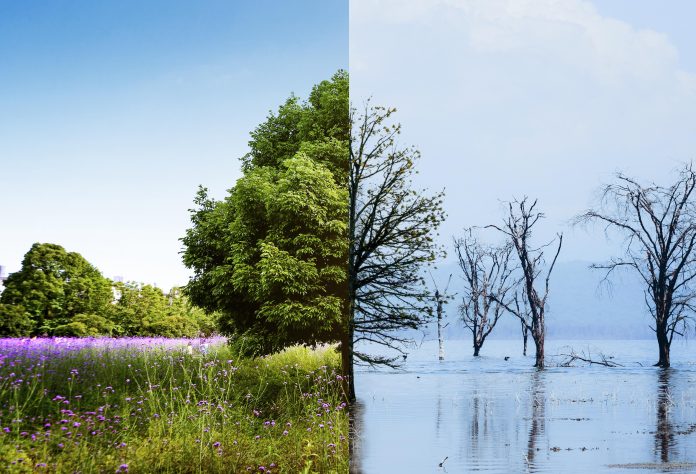Understanding Environmental Change and Its Implications
The journey of environmental change, ingrained in the annals of Earth’s history, has gained increasing relevance in the contemporary discourse. Environmental changes, both naturally occurring and anthropogenic, are transforming the world we live in. Anthropogenic factors, specifically since the industrial revolution, have had a profound impact on the environment. Overexploitation of resources, rapid industrialization, and massive deforestation have upset the balance of our environment.
The pivotal moment in this journey has been the Industrial Revolution. Its impact on the environment has been dramatic, with the advent of new technologies, burning of fossil fuels, and rapid urbanization significantly increasing the emission of greenhouse gases. These activities have precipitated a cycle of environmental degradation and climatic shifts, ushering in the era of accelerated global warming.
Climate Change’s Environmental Impact: A Sobering Reality
With environmental changes and the looming threat of climate change, we face many dire consequences. Sea levels are rising, glaciers are melting, and extreme weather events are becoming more frequent and intense. These environmental effects of global warming disrupt ecosystems, causing loss of biodiversity, changes in agricultural productivity, and shifts in water resources.
In the United States, wildfires in the West have become more severe, heatwaves are becoming increasingly frequent, and coastal communities are grappling with the consequences of rising sea levels and stronger hurricanes. This, in turn, is affecting not only the nation’s flora and fauna but also its citizens.
Environmental Refugees: A New Paradigm of Displacement
One of the severe impacts of these changes is the emergence of environmental refugees, people who are forced to leave their homes due to sudden or gradual changes in their local environment. With the increase in extreme weather events and sea-level rise, more Americans face the prospect of becoming environmental refugees.
Environmental Justice and Climate Change
In the narrative of climate change, the question of environmental justice and climate change cannot be overlooked. The burdens of climate change are not borne equally, with marginalized communities and people of color often facing the most severe consequences. These groups have fewer resources to adapt to or mitigate the effects of climate change, creating a vicious cycle of poverty and environmental degradation.
The Socio-Economic Impact of Climate Change
Climate change does not merely impact the environment; it significantly affects our socio-economic fabric. The economic implications are far-reaching, affecting industries such as agriculture, tourism, and real estate. Additionally, changes in climate conditions can lead to health issues, influencing public health expenses.
Looking Ahead: Navigating Environmental Changes
While the path to combating climate change is challenging, it is not insurmountable. Implementing sustainable practices, encouraging renewable energy sources, and developing climate-resilient communities can help mitigate the impacts. Each of us can contribute to a healthier planet by making more conscious choices in our daily lives.
FAQs on Climate Change and Environmental Issues
What is the relationship between climate change and environmental change?
Climate change is a part of environmental change. Environmental change encompasses various shifts in the Earth’s system, including climate change, biodiversity loss, and shifts in biogeochemical cycles.
How does the Industrial Revolution impact the environment?
The Industrial Revolution significantly increased the emission of greenhouse gases due to rapid industrialization, overexploitation of natural resources, and massive deforestation. This has led to global warming and other environmental changes.
Who are environmental refugees?
Environmental refugees are people displaced due to environmental changes, such as sea-level rise, desertification, or extreme weather events.
What is environmental justice in the context of climate change?
Environmental justice refers to the fair treatment and meaningful involvement of all people in the development, implementation, and enforcement of environmental laws, regulations, and policies. It emphasizes that the impacts of climate change should not disproportionately burden certain communities.
What are some of the environmental effects of global warming?
Global warming can cause sea-level rise, increased temperatures, melting of polar ice caps, and an increase in the frequency and intensity of extreme weather events. It can also lead to shifts in ecosystems and biodiversity loss.
What are the socio-economic impacts of climate change?
Climate change affects various sectors, such as agriculture, tourism, and real estate. It can also lead to health issues and increased public health expenses, and disproportionately affects marginalized communities.
How can we mitigate the impacts of environmental changes?
Mitigating environmental changes requires a multipronged approach, including adopting sustainable practices, promoting renewable energy, protecting and restoring ecosystems, and developing resilient communities.
Why is climate change a significant issue in the United States?
Climate change affects the United States in various ways, including more severe wildfires, increased frequency of heatwaves, rising sea levels, stronger hurricanes, and threats to public health.
How does climate change impact biodiversity?
Climate change can cause shifts in habitats, leading to biodiversity loss. Some species might become extinct if they cannot adapt to these changes.
What is the role of individuals in combating climate change?
Individuals can make a difference by adopting sustainable practices, including reducing, reusing, recycling, using renewable energy, and advocating for policies to mitigate climate change.
As we face the multifaceted challenges of climate change and environmental changes, awareness, knowledge, and proactive action are our most potent weapons. By understanding the links between our actions and their repercussions, we can chart a path towards a sustainable and equitable future.


